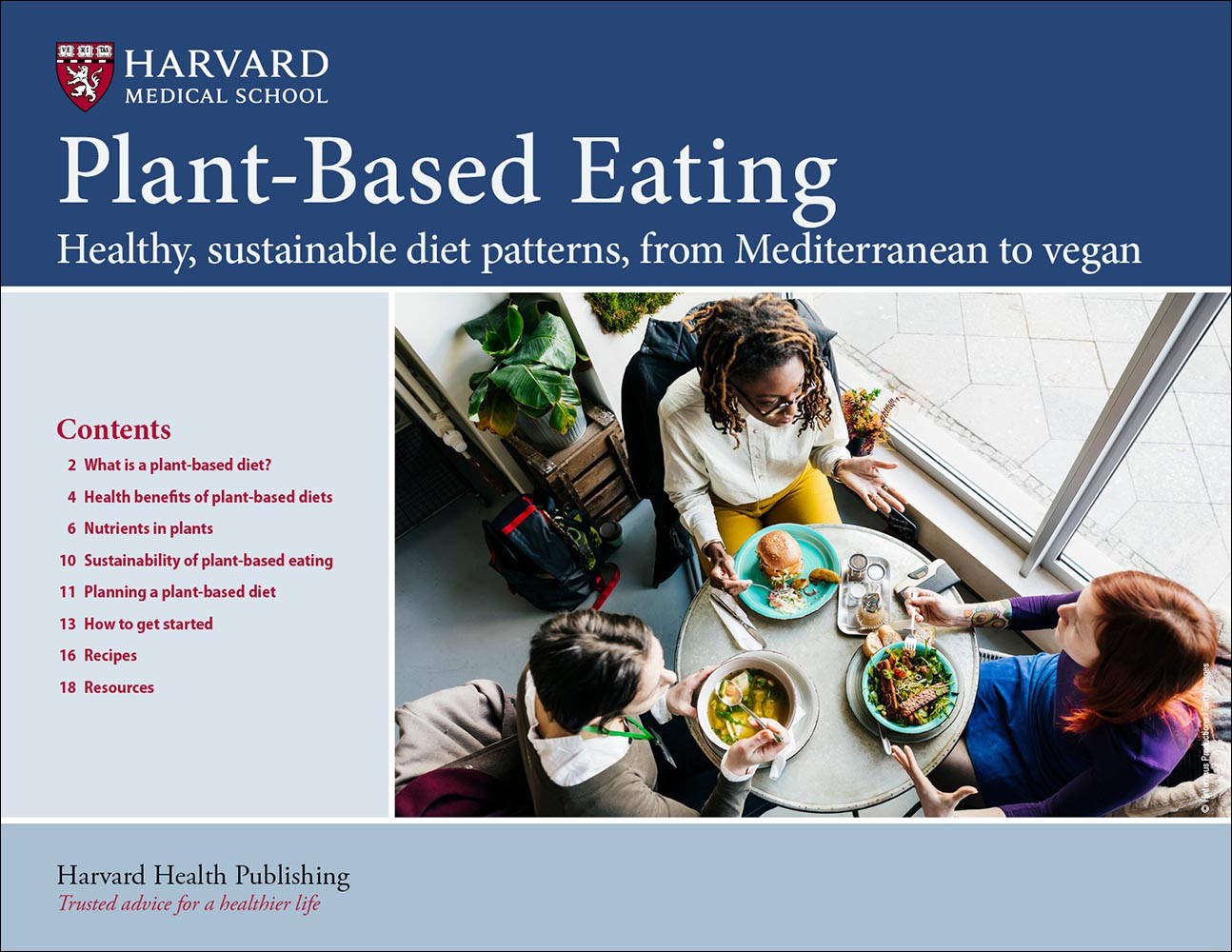Mediterranean diet may help ease depression
Research we're watching
- Reviewed by Toni Golen, MD, Editor in Chief, Harvard Women's Health Watch; Editorial Advisory Board Member, Harvard Health Publishing; Contributor

Consuming a Mediterranean diet — which emphasizes plant-based dishes and healthy fats — helps ease depression symptoms in people with the mood condition, a new research review suggests.
The analysis, published online Jan. 14, 2024, by Nutrition Reviews, involved 1,507 adults ages 22 to 53 (72% women) with depression characterized as mild, moderate, or severe. Researchers evaluated five earlier randomized, controlled trials lasting between six and 48 weeks in which some participants were advised how to change eating habits to follow a Mediterranean-style diet, which is rich in vegetables, fruits, whole grains, beans, nuts, fish, and olive oil. These participants were educated about the diet using various methods, including individual counseling and cooking workshops. Study participants in the control groups, who weren't advised on the Mediterranean diet, consumed their regular diet or took placebo supplements. Participants who followed a Mediterranean diet experienced a greater reduction in depression symptoms than those in control groups.
The study was observational. This means that the researchers couldn't prove a Mediterranean diet eases depression, only that an association exists.
Image: © monticelllo/Getty Images
About the Author

Maureen Salamon, Executive Editor, Harvard Women's Health Watch
About the Reviewer

Toni Golen, MD, Editor in Chief, Harvard Women's Health Watch; Editorial Advisory Board Member, Harvard Health Publishing; Contributor
Disclaimer:
As a service to our readers, Harvard Health Publishing provides access to our library of archived content. Please note the date of last review or update on all articles.
No content on this site, regardless of date, should ever be used as a substitute for direct medical advice from your doctor or other qualified clinician.
















